Community Action Month: Interview with Luz Martinez
Q: Tell me about what a day at CAP looks like for you.
A: I’m the main person who greets everyone in person and via the phone. I get many calls from people who are experiencing domestic violence. Since I answer the phone, I often hear about cases of abuse before the attorneys hear about them. I will set up appointments with attorneys or legal advocates for the clients.
When you think about a receptionist position, you think about someone that sits behind a desk, answering the phone and transferring calls to others, greeting people, and things like that. At this job, things are way more than that. You really must have the ability to listen to others without being judgmental. You need a good heart, patience, compassion, and you need to be trauma sensitive.
When victims call, they are eager to tell their story and want to be heard. You need to watch what you say and, if in person, you need to be aware of your body language and facial expression. Sometimes you will talk to someone on the phone that will cuss you out, sometimes you will talk to someone with mental health issues, and you need to know who to refer them to. In cases like this we are not the ones they should be talking to, but we can be of service by referring them to other agencies or to the counseling component. We are a trauma informed crisis center, but we are the legal side of things. We are here to help them with the legal part of their problems. Many people want and need more than just a receptionist and that is when you must be sensitive to their feelings and needs, but at the same time point them in the right direction. When I finally retire, I hope that the person that becomes the new receptionist will have the virtues that are needed for this position. I’m not saying that I will retire yet, but I want to make sure that whoever takes on this position is aware and prepared for this job.
Q: Can you tell me about a specific participant story that comes to mind and has stuck with you?
A: There are a lot of them. I can often remember clients and stories from 20 years ago. There are certain things about people and stories that stick in your mind and in your heart. There is one that I hold close to my heart, and it helps me remember why I need to continue working here. It’s a calling to work in something like this and you must have the willingness to serve others. You also need to have a tough stomach and a backbone.
This person is a survivor of domestic violence. She fled the defendant. One day after dropping her child off at school, the defendant was hiding in the back of her van and as she was driving off to go to work, the defendant jumped out with a knife in his hand, began to stab her, and then took off and left her for dead. Against all odds, she survived. She came into our office, and we helped her file a PFA against the defendant.
That was the first huge trauma incident that I encountered here and that was 21 years ago. When I was a teenager, I had a friend who experienced something similar. I think that’s why it has stuck with me all these years.
Q: Why community action? // Why do you work at CAP?
A: The original CAP was on Rockland St. when I moved here in 1991. In 1992, I lived down the street from CAP. At that time, I was able to use some of CAP’s programs/resources and after my youngest was in school full time, I went back to school to further my education. Once I graduated, I knew I wanted to work for CAP because they provided services for me, and I wanted to give back to the community. After 5/6 years of applying, I got a call and had no idea I was coming to the DVS office. I knew nothing about domestic violence, and it was a whole new world for me. When I interviewed, it went so well, and I was chosen for the position. I eventually applied to be a legal advocate and then 9/11 happened, and we lost a lot of funding. We had to let some people go, and I was asked if I wanted unemployment or if I wanted to take the receptionist position. It’s a rewarding position and I’ve been in this position ever since. The position has changed since then. I feel more like a legal secretary now, being that I’m an assistant to the legal advocates and that I assist the attorney’s in creating legal files and assisting them in whatever they may need.
May is Community Action Month, which gives agencies across the country the opportunity to build awareness of the important anti-poverty – or as we like to consider it, pro-prosperity – work happening in our communities. What we know to be true is that the resources and services provided at Community Action Partnership of Lancaster are only as strong as the folks who work here, and so for us, celebrating community action means celebrating our amazing team and learning more about their heart for the work. Thank you for reading!


